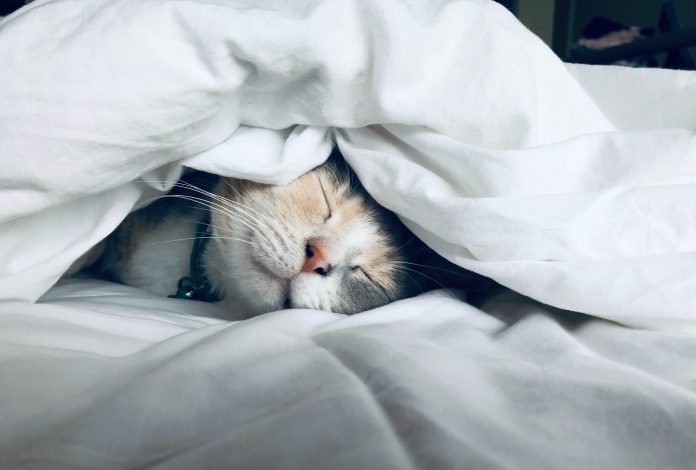A good day usually begins and ends with a deep, refreshing, and energizing sleep. Not only is it exhausting, but it can also be very frustrating. Especially when you’re watching the hours tick by in search of some quality to close your eyes… But even the most regular sleepers among us hit a roadblock once in a while It can be an exciting night before a road trip, an anxious night before announcing big results, or the weird unexpected late night when you just missed your time to sleep together.
But no matter what your illness is or how good your sleep is, here are seven practical tips to help you get the best sleep possible.
1. turn off distractions
Do you take your phone or tablet to bed? These may affect the length and quality of your sleep. Shut out distractions and keep technology out of your bedroom for a better snooze experience. This not only eliminates unwanted ringing, buzzing, and distractions but also blocks blue light from your bedroom, which has been shown to disrupt sleep patterns.
2. keep sleep consistent
Have a sleep regime and try to stick to it. A late-night nap can help relieve the stress of the day, but it can take a heavy toll when it’s time to go to bed. See if you can adjust your schedule. If not, stick to the plan until your body gets used to it.
3. Retire before hitting snooze
Getting into bed is good if you can get a good night’s sleep, but often you need to relax to guarantee a great night’s sleep. Return to your bedroom at least 45 minutes before bedtime and use this time to relax and detach yourself from the pace and demands of your day. 4. Create a sleep-friendly environment
If you have trouble sleeping, check out the dorms. An uncluttered environment with a few elegant touches can make a big difference to your sleep. Even lavender-scented sheets, soft lighting, and perfectly placed pillows can help you get the best sleep. It helps you get
5. be careful what you eat
Cut off stimulants a few hours before bed. Caffeine is a no-go, but so are foods high in sugar and starch. Best to eat before 7 pm:
It’s noon, so your digestive tract is relaxed and you don’t have to wrestle with what you just packed.
6. Sleep well
A good exercise is beneficial for a good night’s sleep as it not only makes you tired but also improves circulation, oxygen levels, and flow throughout the body and replenishes feel-good hormones that contribute to a good night’s sleep. 7. Meditate before bed
Clearing the mind is a great way to ensure the best quality sleep and helps keep the worries and pressing demands of life and day-to-day at bay. Meditation at the end of the day and align your mental and emotional gauges with a more positive attitude. Perfect to incorporate into your bedtime ritual, light meditation can help relax your mind and body and prepare you for a great night’s sleep.













